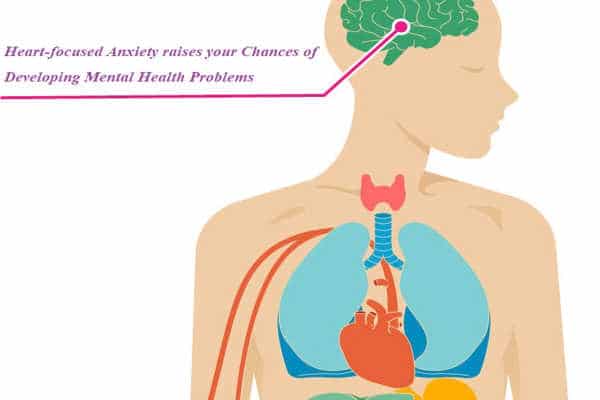Mental health, which refers to a person’s emotional, psychological, and social well-being, is an important component of overall health. Mental health is concerned with how we think, feel, act, and make decisions. Short-term and long-term mental health disorders can interfere with a person’s mood, behavior, thinking, and ability to relate to others. Several studies have demonstrated the impact of trauma, depression, anxiety, and stress on the body, including the heart.
Latinx young adults who suffer from heart-focused anxiety may be more vulnerable to mental health disorders. According to new research, heart-focused anxiety is a statistically significant predictor of general depression and overall anxiety in that group.
A common scenario for coffee drinkers is drinking an extra cup only to end up with a racing heart and a subtle reminder to themselves to cut back on the caffeine. However, for those with a different thought pattern, one that includes heart-focused anxiety, the racing heart may result in the fear of a heart attack and a trip to the emergency room.
It turns out young Latinx adults who experience heart-focused anxiety could be at greater risk for mental health disorders.
New research indicates that heart-focused anxiety among that group is a statistically significant predictor for general depression and overall anxiety.
“We have empirical evidence that individual differences in heart-focused anxiety are related to more severe co-occurring anxiety and depressive symptomatology among a particularly vulnerable segment of the Latinx population,” writes Michael Zvolensky, Hugh Roy, and Lillie Cranz Cullen Distinguished University Professor of psychology at the University of Houston, in the Journal of Racial and Ethnic Health. Zvolensky is referring to Latinx young adults born in the United States who have experienced prior trauma. Racism-related and transgenerational stress may be a part of their trauma.
This is only Zvolensky’s second study on heart-related anxiety in the Latinx community.
“In our first study, we looked at middle-aged adults who were presumably more concerned about their health. This study is unique, however, because we are seeing a similar pattern even among a group that is generally too young to be experiencing mounting health concerns, implying that it is likely relevant to the entire Latinx population “Zvolensky stated.

According to previous research, the Latinx population can somatize mental health problems, which means they don’t see them as mental health issues, but rather as physical symptoms that they report. As an example, anxiety may manifest as a headache or difficulty breathing.
“This population also has a lot of chronic physical health co-morbidities, such as heart disease and obesity, so this research is a good fit for a population that tends to blame mental health issues on physical ailments, which generates greater mental health risk,” said Zvolensky, who is also the director of the Anxiety and Health Research Laboratory/Substance Use Treatment Clinic at UH.
To make matters worse, treatment for mental health conditions is frequently limited or nonexistent among Latinx populations. “When compared to non-Latinx whites, Latinx people underutilize mental health services and are more likely to use primary care for the delivery of mental health services, which are often inadequate for successfully addressing mental health problems,” said Zvolensky, who created and evaluated reports from 169 college-aged, Latinx college students who had been exposed to trauma.
“The findings showed that heart-focused anxiety was a statistically significant predictor of general depression and overall anxiety,” Zvolensky explained.
Clinically, the study’s findings could eventually guide the development of specialized intervention strategies. “We can screen for heart-focused anxiety, which is much more efficient and precise than screening for a wide range of mental health issues,” Zvolensky explained. “If you can reduce heart-focused anxiety, you will be doing that person a great service because you will be lowering their risk for a variety of mental health issues. This is referred to as precision medicine.”
Nubia A. Mayorga, a clinical psychology doctoral student supervised by Zvolensky, is the paper’s lead author.
Heart disease and mental illness are two of the world’s leading causes of morbidity and mortality. Decades of research have revealed several, sometimes surprising, links between CHD and mental illness, with some even suggesting that they may cause one another. However, the precise nature of these connections has yet to be determined.
















